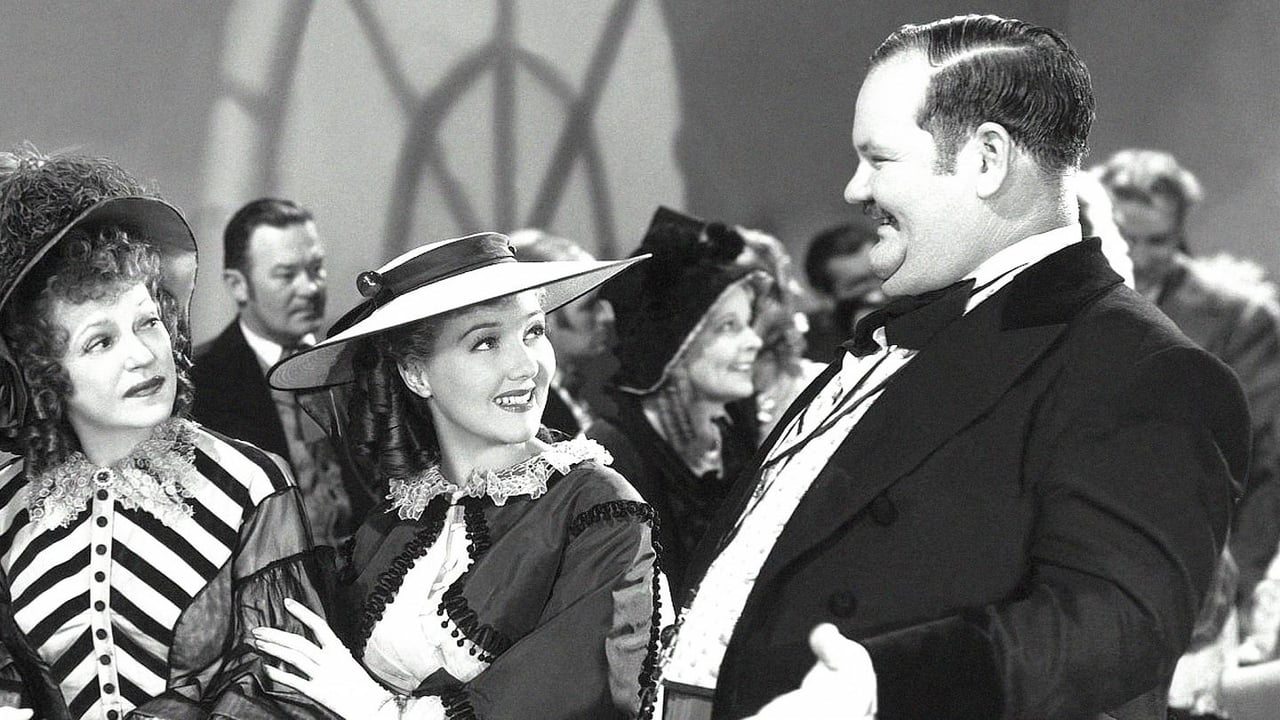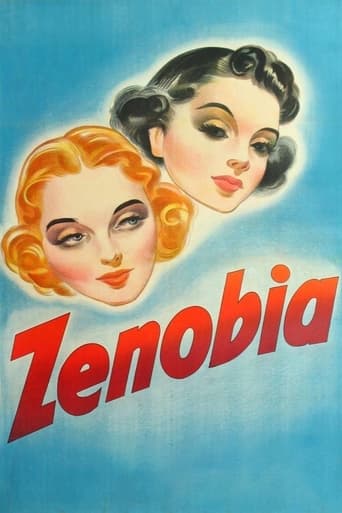

Truly Dreadful Film
... View MoreLack of good storyline.
... View MoreAn action-packed slog
... View MoreActress is magnificent and exudes a hypnotic screen presence in this affecting drama.
... View MoreIT HAS LONG been conventional wisdom that, "Children and Dogs bring people together. The old proverb had adapted itself quite handily to the motion picture business long, long ago. W.C. Fields, for example, was a leading exponent of this belief; although his creed concentrated much more on the human portion of the statement.WHILE DOGS MAY well reign supreme in the four-legged category, most any animal has at least a portion of this screen magic. Throughout motion picture, there has been a veritable menagerie of creatures, great and small, who have shared the spotlight with their partners of the species homo sapiens sapiens. In many an instant, they stole many a scene; if, indeed, the entire picture.RATHER THAN HAVING humans competing with Dogs (Lassie, Benji, Yukon King, Rinty, etc.), or a Chimp (Cheetah, Zippy, J. Fred Muggs) or a Fish (Flipper*, Mr. Limpet), we have an elephant (Zenobia) in an eternal triangle with her owner (Harry Langdon) and the kindly town Doctor (Oliver Hardy). The humor is broad and varied. It is quite different;so, please don't expect this to be a Laurel & Hardy comedy; you see, Schultz, SONS OF THE DESERT it's not! IT WOULD SEEM that at this point in film history, being Anno Domini MCMXXXIX (that's 1939 A.D.), that there was a deluge of news and interest in anything and everything which even remotely related to the American Civil War was in. Although there is no specific date given in the picture, it would seem to be Ante-Bellum, that's Latin for "before the War." The costuming and situation with the Black Actors (Hattie McDaniel, Lincoln Perry) would seem to suggest neither Wartime nor the Reconstruction.THERE IS ALSO a speech by Oliver Hardy to the young boy about how matters concerning Whites have nothing to do with Black Folks and the concerns of Black People aren't any business of Whites. We concluded that this is sort of a disclaimer for Hal Roach Studios in any historical matters that might arise; such as had been the case of the D.W. Griffith epic silent, BIRTH OF A NATION. (This may sound silly today, but one must view things through the eyes of those in that period; as well as through contemporary lenses.) WITH RESPECT TO the film itself, it is quite amusing. Whereas we had previously said that it was no L&H Comedy, it did strike several chords wit its audience. It was a fine showcase to the versatility of Mr. Hardy, who demonstrated that he was truly an actor; with "Ollie" being his most successful character.IN THE CASE of Oliver's co-star, Mr. Harry Langdon, it was a true tour de force; for he did a fine job of bringing a somewhat updated version of his "Adult Baby" persona from his Silent Screen days, when his name was at one time mentioned in the same breath with those of Chaplin, Keaton and Lloyd.FOLLOWING HIS APPEARANCE in ZENOBIA, he returned to work as a behind the scenes gag man and to making two reelers for Roach and Columbia; all of which were okay, but mediocre shorts and surely a far cry from his salad days at Sennett and First National.TAKING THE TIME to stop and view the film, which was known as ELEPHANTS NEVER FORGET in the U.K. will not be totally wasted time. You will most probably enjoy it a lot more than you would have thought. We certainly did.NOTE * Alright, we know Flipper was a Dolfin, and hence a warm-blooded, live bearing MAMMAL!!
... View MoreI had always been interested in watching this curiosity (Oliver Hardy without Stan Laurel!) - however, it finally came about by way of a colorized and atrociously-dubbed version on Italian TV! I don't know if it was intended as such but, rather than Harry Langdon, the character that was made to fill Stan's shoes, as it were (complete with the Italian voice typically associated with him), was Billie Burke - playing Hardy's wife - but she came off as such an irritating dim-wit that I wanted to strangle her!! To make matters worse, with the story taking place in the Old South, we're treated to the unenviable comic relief of Stepin Fetchit (though his antics proved reasonably tolerable, under the circumstances).Hardy's character, then, isn't the pompous, bumbling and flustered one we'd come to love! Langdon, as the owner of a traveling medicine-show and a pachyderm, is okay (especially during his scenes in court - having learned his deposition by heart, every time he's asked to speak he starts from the very top!); this was only his second Talkie that I've watched - the first occurred only recently with HALLELUJAH, I'M A BUM (1933). Jean Parker and James Ellison provide bland romantic interest and the supporting cast also features Oscar winners Alice Brady and Hattie MacDaniel, but their stereotypical characters - snooty matriarch and black cook, respectively - add very little of substance to the proceedings! In the end, while the elephant's persistent and awkward devotion to doctor Hardy for having cured her (even disrupting a society party and following him into the court-room!) provides some undeniably charming moments, I think I'd still prefer Laurel & Hardy's maligned vehicles of the 1940s over it...
... View MoreIt is real cool the way this simple and seemingly silly movie has a big story to tell about bigotry and slavery and not just the obvious retrenches to the declaration of independence and "black pills" and "red pills". I wonder how many people who saw Zenobia in 1939 got the hidden messages subtle and obvious. Everyone reviewing Zenobia here in IMDb may have missed or did not mention an underling theme in the symbol represented by Zenobia the "elephant" that is big and always present like an elephant. Did anyone guess that maybe Zenobia represented a symbol of .(you put your own word here about bigotry)? This is a great movie for using humorous subtleness to expose race, bigotry and prejudice at a time (1939) when people did not want to hear about race problems. It seems no coincidence that the most prejudice state Mississippi was chosen for the location and not Georgia or any other southern state.One sees the film with the view to the more subtle inferences to race with a Big Elephant named Zenobia. You may have a whole new perspective on the film and what appears to be "poorly written", "little real humour (humor)", "racist performance of Stepin Fetchit", etc. is really a great presentation. Considering the times (1939), and the subtle symbol of "Zenobia", then this movie is a down right genius of production! I think Stepin Fetchit knew what the movie meant and was a lot smarter than people think.
... View MoreI am a great lover of the Laurel and Hardy movies and so it was with some excitement that I was finally able to rent one of only two movies that Oliver Hardy made without Stan Laurel since their teamwork began (the other, Fighting Kentuckian, also stars another one of my favorite actors, John Wayne, and I enjoyed that one quite a bit). This however was a huge disappointment. It seemed to be Hal Roach's attempt at a prestige piece but it belies its poor roots. The story of a country doctor in the 19th century who treats an carnival elephant named Zenobia and then can't lose the elephant and its affections is poorly written, with little real humour. The performances are lackluster, with the exception of Billie Burke as Ollie's long suffering yet dim-witted wife. Her performance injects each scene she is in with the kind of manic craziness the rest of the movie aspires to but can't deliver. Another major bone of contention was the hideously racist performance of Stepin Fetchit as the servant, Zero. Ollie's later speech on equality can not even begin to make up for this truly offensive addition to an already poor movie. An early L&H sound short, Laughing Gravy, was included on the tape and showed us what Ollie could really do when given the proper material with Stan and I laughed out loud many times. I only wish that Zenobia could have made me do that just once.
... View More